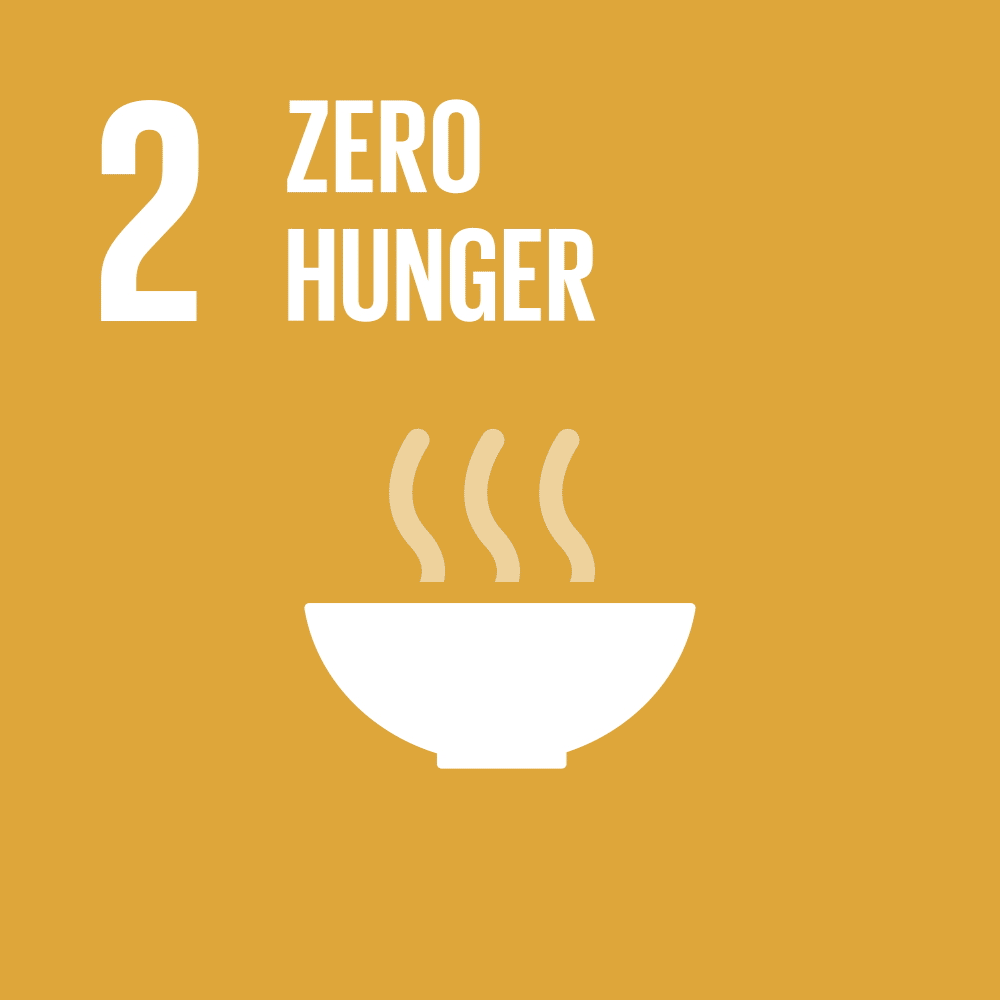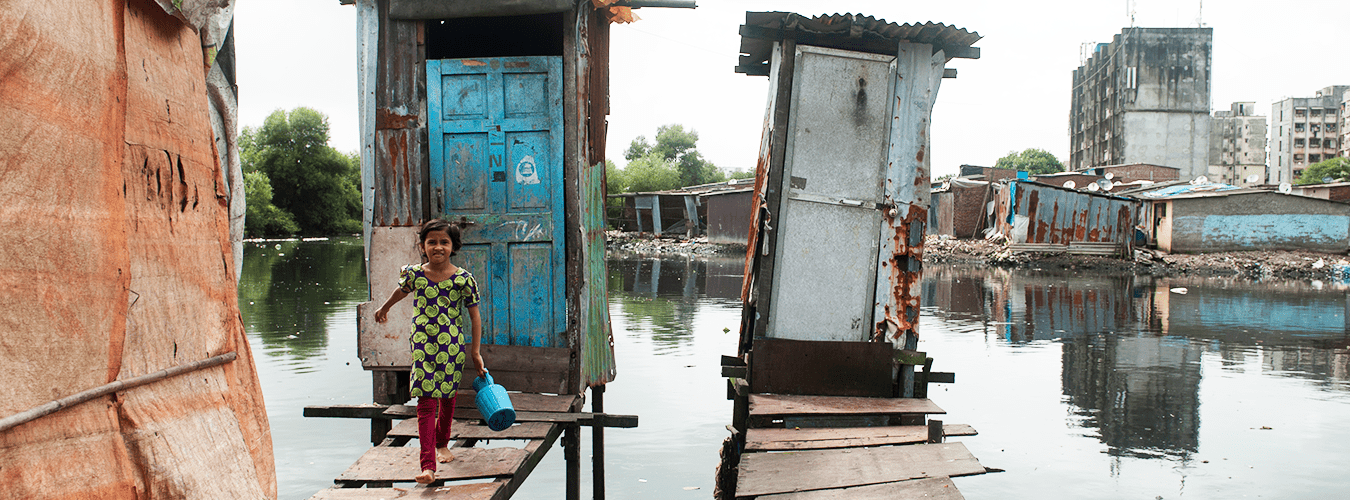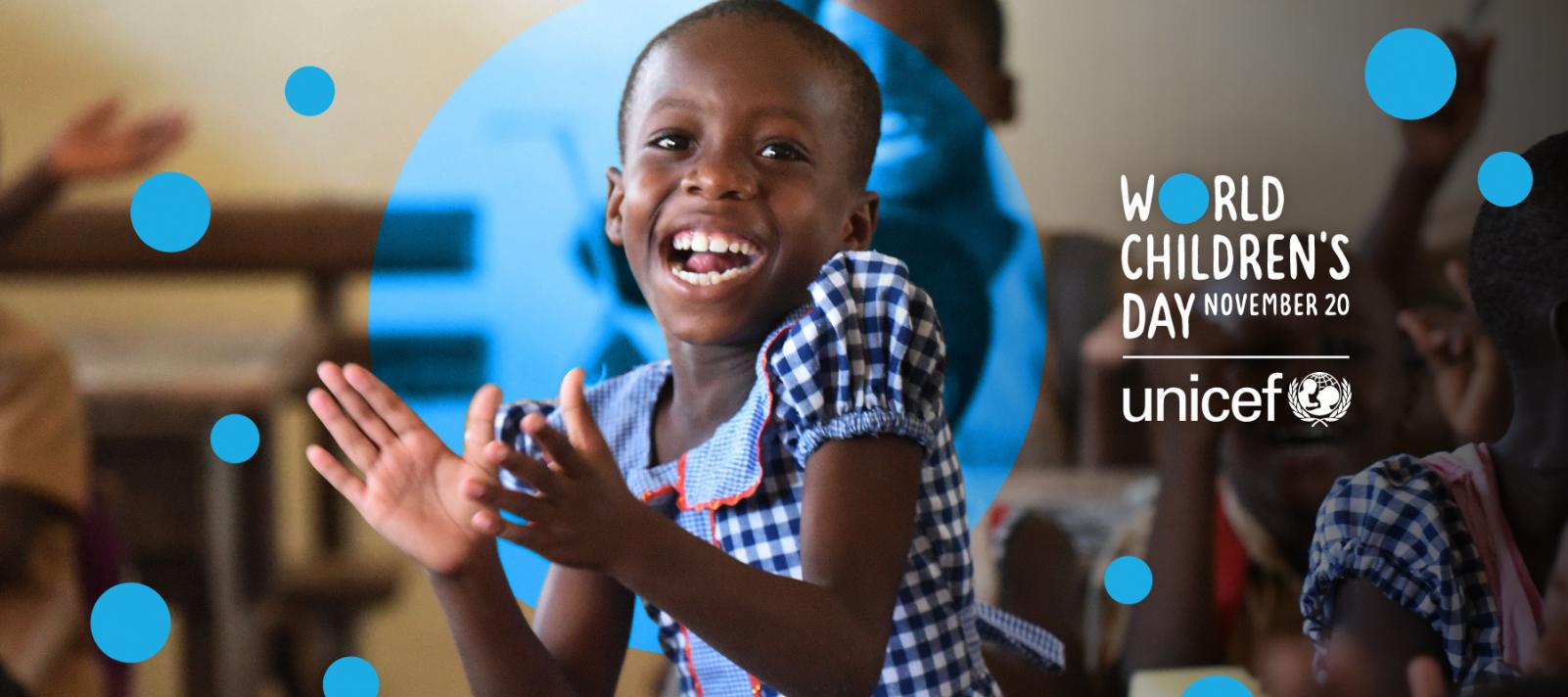“In a world of plenty, it is a grave affront that hundreds of millions go to bed hungry each night.” –UN Secretary-General António Guterres

Why we need to recover better
In 2019, an estimated 690 million people did not have enough food to eat – up by 10 million from 2018, and by nearly 60 million in five years. At the same time, more than 3 billion people could not afford a healthy diet – causing a rise in malnutrition, under-nutrition and/or obesity.
The COVID-19 pandemic has put another 130 million people at risk of starvation by the end of 2020. The world was not on track to achieve Zero Hunger by 2030 even before COVID-19. In fact, pre-pandemic trends in food security meant that more than 840 million people could be affected by hunger by 2030.
Profound changes in our food and agriculture systems are needed to meet the unprecedented challenges to food security and nutrition, and to meet the demands of a growing world population, says the UN Food and Agriculture Organization.
In 2021, UN Secretary-General António Guterres will convene the Food Systems Summit – with a great emphasis on the critical need for resilient food systems that are resistant to volatility and climate shocks.
As we near the end of 2020 and a year of coping with the pandemic, the Goal of the Month editorial looks at the latest content and resources on the future of food and nutrition, and the global movement to end food loss and waste – highlighting initiatives critical to recovery and building resilience.
Why We Must Transform Our Food Production and Consumption Patterns
“We are going to build consensus so that we can move from what is considered ‘broken’ today towards a more effective food system and deal with the challenges.” – Agnes Matilda Kalibata, UN Special Envoy for the Summit
Today, too many of the world’s food systems are fragile, unexamined and vulnerable to collapse – as we continue to witness during the pandemic. To address these challenges and in a major global effort to recover sustainably, the UN Secretary-General António Guterres will convene a Food Systems Summit in 2021 to launch bold new actions to transform the way the world produces and consumes food. The UN Africa Renewal magazine asks Special Envoy Kalibata how we can fix the ‘broken’ global food system.
For more information, visit the Summit website here.
 The COVID-19 pandemic is a health and human crisis threatening the food security and nutrition of millions of people around the world. Hundreds of millions of people were already suffering from hunger and malnutrition before the virus hit and, unless immediate action is taken, we could see a global food emergency. In the longer term, the combined effects of COVID-19 itself, as well as corresponding mitigation measures and the emerging global recession could, without large-scale coordinated action, disrupt the functioning of food systems. Such disruption can result in consequences for health and nutrition of a severity and scale unseen for more than half a century.
The COVID-19 pandemic is a health and human crisis threatening the food security and nutrition of millions of people around the world. Hundreds of millions of people were already suffering from hunger and malnutrition before the virus hit and, unless immediate action is taken, we could see a global food emergency. In the longer term, the combined effects of COVID-19 itself, as well as corresponding mitigation measures and the emerging global recession could, without large-scale coordinated action, disrupt the functioning of food systems. Such disruption can result in consequences for health and nutrition of a severity and scale unseen for more than half a century.
Click here to read the full policy brief.
Food Security
Report: State of Food Security and Nutrition in the World 2020
The latest edition of the State of Food Security and Nutrition in the World, released in July 2020, made a startling discovery – after steadily diminishing for decades, chronic hunger slowly began to rise in 2014 and continues to do so. This means that over the last five years, hunger has grown in step with the global population.
But overcoming hunger and malnutrition, including undernutrition, overweight and obesity, is about more than securing enough food to survive, says the United Nations. What people eat – and especially what children eat – must also be nutritious.
Read the report.
Food Security around the World
Check out the Food and Agriculture Organization’s interactive maps on the state of the world’s food security:
food and agriculture
Report: Statistical Yearbook: World Food and Agriculture 2020
 After a seven year absence, the revamped Statistical Yearbook shows the importance and value of data and statistics as a strategic global public good that shapes the future world, says the Food and Agriculture Organization.
After a seven year absence, the revamped Statistical Yearbook shows the importance and value of data and statistics as a strategic global public good that shapes the future world, says the Food and Agriculture Organization.
What are some of the major factors that affect the current global food and agriculture landscape? Did you know that the demand for food has caused cropland to increase by 75 million hectares between 2000 and 2017, equivalent to twice the size of Japan? At the same time, forest land decreased by 89 million hectares, equivalent to the size of Nigeria?
Find out more, click here.
Idris and Sabrina Dhowre Elba Visit Rural Sierra Leone
Watch actor Idris and his wife, activist Sabrina Dhowre Elba, travel to rural Sierra Leone – where climate change continues to threaten food production and any tenuous gains made in recent years, following the civil war and the Ebola outbreak.
Traditional Agricultural Practices
Learn about the five ways indigenous peoples, known for their traditional agricultural practices, are helping the world achieve zero hunger.
Podcast: Recovery, Rebuilding, Resilience Under COVID-19
 Listen to a podcast from the International Fund for Agricultural Development on nutrition in the Lao People’s Democratic Republic, and Italy’s agro-ecological movement.
Listen to a podcast from the International Fund for Agricultural Development on nutrition in the Lao People’s Democratic Republic, and Italy’s agro-ecological movement.
ACCESS TO FOOD
Report: Cost of a Plate of Food
 The World Food Programme’s (WFP) Cost of a Plate of Food Report looks at the countries where a simple meal such as rice and beans could cost more than people’s incomes. In South Sudan, for instance, basic ingredients needed for a meal could cost a staggering 186 percent of a person’s daily income. Seventeen of the top 20 countries facing such gross inequality in the access to food are in sub-Saharan Africa.
The World Food Programme’s (WFP) Cost of a Plate of Food Report looks at the countries where a simple meal such as rice and beans could cost more than people’s incomes. In South Sudan, for instance, basic ingredients needed for a meal could cost a staggering 186 percent of a person’s daily income. Seventeen of the top 20 countries facing such gross inequality in the access to food are in sub-Saharan Africa.
Hunger and Displacement
WFP and the International Organization for Migration will issue a report in November on the link between hunger, migration and displacement. The report will look at how people on the move are being disproportionately affected by COVID19 – with knock-on effects on their families back home. Look out for more information here.
For more information on hunger, conflict, and improving the prospects for peace, check out the World Food Programme’s latest factsheet.
From obstacles to orchards in Pakistan

Read about Umer, who let nothing stand in his way from starting his own farming business and providing for his family.
Tackling food waste
Roughly 30 percent of the food produced worldwide is lost or wasted every year. That means all the resources that were used to produce the food – including water, land, energy, labour and capital – go to waste. In addition, the disposal of food loss and waste in landfills, leads to greenhouse gas emissions, contributing to climate change.
Watch an interview with world-renowned chef Massimo Bottura, who was recently appointed UN Environment Programme Goodwill Ambassador, lending his influence to end food loss and waste.
Waste Not, Want Not
 The COVID-19 pandemic continues to contribute to food insecurity in many countries, including the richest country in the world, the United States. UN News visits a community kitchen in Brooklyn, New York, to find out how reducing food loss and waste can make a big difference to some of society’s most vulnerable.
The COVID-19 pandemic continues to contribute to food insecurity in many countries, including the richest country in the world, the United States. UN News visits a community kitchen in Brooklyn, New York, to find out how reducing food loss and waste can make a big difference to some of society’s most vulnerable.
Read more here.
Climate Action Superheroes

On 7 November, the UN ActNow campaign will introduce eight new Climate Action Superheroes who will challenge children to recycle, save food, energy and water, and do much more to tackle climate change and live more sustainable lives.
Dedicated challenges and activity packs linked to each of the Superheroes will allow children to learn and develop more sustainable habits.
For a sneak peak, click here.
Read more about UN ActNow campaign.
INITIATIVES TO END HUNGER
Share the Meal
 The World Food Programme launched the app in 2015 to support its numerous operations around the world. With US$ 0.80, we can feed one child for a day.
The World Food Programme launched the app in 2015 to support its numerous operations around the world. With US$ 0.80, we can feed one child for a day.
Each year, WFP reaches more than 86 million people with food assistance in around 83 countries, and through the donations, it has been able to provide aid to some of the world’s largest food crises including Yemen, Syria and Nigeria.
#StopTheWaste
 If we can reverse the current trend on food waste, we could save enough food to feed 2 billion people, says the World Food Programme, whose campaign aims to raise awareness to curb the world’s wasteful habits.
If we can reverse the current trend on food waste, we could save enough food to feed 2 billion people, says the World Food Programme, whose campaign aims to raise awareness to curb the world’s wasteful habits.
upcoming events
2 to 6 November | UN Police Week
 The annual event brings together the Heads of UN Police components of peacekeeping and special political missions to strategize and strengthen operations, especially in light of a changed landscape due to COVID-19. It also marks the 60th anniversary of the UN Police this year.
The annual event brings together the Heads of UN Police components of peacekeeping and special political missions to strategize and strengthen operations, especially in light of a changed landscape due to COVID-19. It also marks the 60th anniversary of the UN Police this year.
Chief Inspector Doreen Malambo, Gender Adviser at the United Nations Mission in South Sudan (UNMISS), has won 2020 UN Woman Police Officer of the Year Award, in honour of her work supporting vulnerable groups, such as women, girls, children, and people with disabilities.
9 November | Internet Governance Forum
 The 15th annual meeting of the Internet Governance Forum takes place virtually until 17 November under the overarching theme: Internet for human resilience and solidarity. The premier UN-hosted annual event will bring together over five thousand experts, leaders and representatives from all sectors to discuss the impact of the Internet on our lives within four key thematic tracks – data, environment, inclusion and trust.
The 15th annual meeting of the Internet Governance Forum takes place virtually until 17 November under the overarching theme: Internet for human resilience and solidarity. The premier UN-hosted annual event will bring together over five thousand experts, leaders and representatives from all sectors to discuss the impact of the Internet on our lives within four key thematic tracks – data, environment, inclusion and trust.
13 November | Spotlight: Climate Financing for Farmers
The event, organized by the International Fund for Agricultural Development and Devex, will shed light on the needs of small-scale farmers in the face of climate change, presenting key findings from a new joint report on climate financing for farmers.
15 November | 20th anniversary of the UN Convention against Transnational Organized Crime
The landmark Convention, the only global legally binding instrument against transnational organized crime, turns 20 as the world steps up action against organized criminal activity in the time of COVID-19.
Message from the Executive Director of the UN Office on Drugs and Crime: https://www.unodc.org/unodc/en/untoc20/eds-message.html
19 November | World Toilet Day
 An estimated 4.2 billion people or about 54 per cent of the world’s population lives without access to safely managed sanitation that includes proper disposal and treatment of waste. UN Water will mark the Day highlighting the importance of sustainable sanitation systems – critical to withstand climate change and disasters as well as transform waste into elements that can boost agriculture and produce greener energy.
An estimated 4.2 billion people or about 54 per cent of the world’s population lives without access to safely managed sanitation that includes proper disposal and treatment of waste. UN Water will mark the Day highlighting the importance of sustainable sanitation systems – critical to withstand climate change and disasters as well as transform waste into elements that can boost agriculture and produce greener energy.
20 November | World Children’s Day
 A new report from UNICEF, the UN Educational, Scientific and Cultural Organization, and the World Bank says that children in the poorest countries have lost nearly four months of schooling since the start of the COVID-19 pandemic. This year’s commemoration will focus on the future of learning, free from discrimination and a future that is greener and more sustainable, for every child.
A new report from UNICEF, the UN Educational, Scientific and Cultural Organization, and the World Bank says that children in the poorest countries have lost nearly four months of schooling since the start of the COVID-19 pandemic. This year’s commemoration will focus on the future of learning, free from discrimination and a future that is greener and more sustainable, for every child.
An exhibit in connection with the Day will be posted on the UN Exhibits website. The exhibit, One Day I Will, documents the hopes and dreams of girls trapped in humanitarian crises.
25 November | International Day for the Elimination of Violence against Women & 16 Days of Activism against Gender-Based Violence
 As the world retreated inside homes due to the lockdown measures introduced to curb the COVID-19 pandemic, reports show an alarming increase in the already existing pandemic of violence against women, says UN Women, as it gears up to mark this year’s International Day for the Elimination of Violence against Women and the start of the 16 Days of Activism against Gender-Based Violence (25 to 10 December – Human Rights Day).
As the world retreated inside homes due to the lockdown measures introduced to curb the COVID-19 pandemic, reports show an alarming increase in the already existing pandemic of violence against women, says UN Women, as it gears up to mark this year’s International Day for the Elimination of Violence against Women and the start of the 16 Days of Activism against Gender-Based Violence (25 to 10 December – Human Rights Day).










